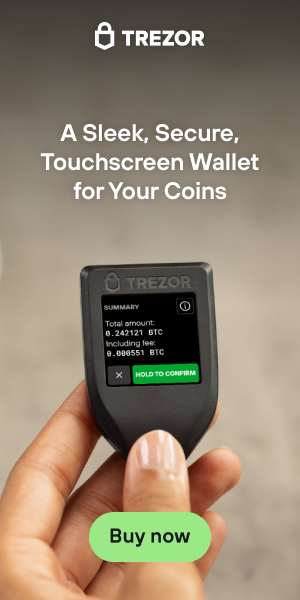In this article, we cover what e-commerce merchants should be prepared for when applying for a license and how they can improve their chances of successful licensing. The following comments are based on our practical experience and apply to the German, European and American markets.
Compared to the previous year, B2C e-commerce sales worldwide increased by 17.1 percent in 2021. In 2026, global retail e-commerce sales are forecast to increase by around eight percent year-on-year. Source: Statista.com.
This development offers e-commerce companies countless opportunities for entry and growth. All-round worry-free service providers such as Shopify or Amazon FBA (Fulfilled By Amazon) enable even private individuals to build up their own brand and a lucrative business as lateral entrants. The special attraction: there are almost no limits to commerce. Most e-commerce entrepreneurs operate globally. Classic constellations are China as the country of manufacture, company headquarters in the USA, the EU, Switzerland and the United Arab Emirates, and sales in Europe and the USA.
I. The licensing business in e-commerce
More and more e-commerce merchants are seeking to distribute products as licensees. Licensing intellectual property offers a variety of benefits and opportunities.
I.1 What can be licensed?
- In principle, any intellectual property can be licensed.
- Patent licenses allow the use of a patent holder’s technology, for example under a private label.
- Trademark licenses allow the distribution of goods or services under an established trademark.
- Design rights, copyrights and know-how can also be licensed.
I.2 Advantages for the licensee:
- Instead of investing own resources in IP landscaping, circumvention solutions, product development and own IP portfolio, the licensee can focus on distribution.
- To the consumer, a license can convey prestige and credibility.
In the competitive environment, the license can serve as an effective means of attack and defense.
I.3 How does the licensing business work?
- With a license, exploitation rights are acquired that are otherwise only available to the rights holder and other licensees.
- The licensee pays the licensor a license fee.
- The exact royalties, mutual rights and obligations, and many other details are set out in the license agreement.
I.4 Parties involved:
- Licensor: is the owner of the intellectual property or entitled to grant a sublicense.
- Licensee: is the contractual partner of the licensor and user of the license.
II. How does one obtain a license?
The willingness to grant a license as well as the design of the licensing processes are basically business decisions made by the rights holder.
The company’s licensing processes vary. They range from large-scale, regular licensing programs to individual licensing for specific cases.
In most cases, the request for a license is a process by which a potential licensee applies to a potential licensor for a license.
Especially in the field of patents, the connection between licensor and licensee is usually publicly visible. For the licensor, licensing therefore only makes sense if the associated effort is financially worthwhile, company-specific values are preserved by the licensee and entrepreneurial risks are minimal. In addition to sales and margins, strategic, political and social factors will therefore also be important.
As a potential licensee, it is therefore important to anticipate the interests of the licensor as well as possible.
III. Maximizing the Chances for Your License Agreement
Our goal is to efficiently guide you to your desired license agreement. We achieve this through thorough preparation, in-depth expertise and established strategies.
In this article, we address the facts that a potential licensor typically asks for before moving on to the substantive negotiation. For this purpose, we discuss a case example from practice.
III.1 Case study from our practice
The following case study is based on a real request for licensing of a technical IP right. The potential licensor is professionally organized and had no information about the potential licensee at the time of the request.
So let’s assume that you had expressed interest in a license to a similar potential licensor through us.
The following seven questions correspond to a simplified list of questions that the potential licensor could use to get back to us.
Question 1: Company identity
First of all, the potential licensor wants to know who he is dealing with. This includes master data of your company such as name, registered office, company form, the names of the responsible persons as well as the website of your company.
Through the website, the licensor will check whether your company has a professional web presence and is well presented to the public. It can be assumed that the licensor will check your website for content, functionality and security. Classic check points are the imprint and data protection functionality. The website should be technically, legally and linguistically mature.
Question 2: Profile of your company
The potential licensor wants to gain a concrete insight into your company. Here, not only business figures are interesting, but also relevant presentations that convey the values of your company.
Presenting your company profile is a good opportunity to underline your entrepreneurial professionalism. We therefore recommend developing a company profile that corresponds to industrial best practices. Cornerstones of this company profile can be:
- Vision Statement
- Mission statement
- Goals (e.g. three goals)
- Strategies (e.g. three strategies per goal)
In many cases, we recommend applying the principles of the SMARTIE method (Specific, Measurable, Achievable, Relevant, Time-bound, Equitable).
Question 3: Product portfolio
The potential licensor wants to know what products you will sell under the license. Here, clear model details and product specifications are required so that the licensor can understand exactly which products will be introduced to the market if the license is granted.
Question 4: Sales channels
The potential licensor will want to know which channels you plan to use to sell your products. Be it online via your own website, platforms such as Amazon or stationary in retail stores. In either case, the sales channels should work. For example, the potential licensor should be able to successfully place an order for (any) product.
Question 5: Volume
The potential licensor wants to be able to estimate your sales volume for the planned product. A business plan should be available for the planned product. If other sales figures for comparable products are available, these can also be cited.
Question 6: Team & work processes
The potential licensor wants to know your processes. Introduce your team and explain the relevant workflows. An important point is the customer service area. For example, it will be well received to have service hotlines, chat and/or comment functions, FAQ areas. Additional seals of approval, certificates as well as other reliable information about internal processes can help.
Question 7: Additional information
If there are other factors that could give your company an advantage, these should also be highlighted. For example, if you plan to sell a product as a private label, you should be able to show appropriate trademark protection.
III.2 Conclusion
How comprehensively a licensee’s questions should be answered depends on the individual case.
The above case study is to be understood as a benchmark for large industrial licensors. Our comments on the answers to the questions are correspondingly detailed.
Nevertheless, care must be taken not to overshoot the mark. In our experience, it is smart to consider the professionalism, culture and communication of the potential licensor when preparing the application documents.
IV. How can we help?
We can assist you in all aspects of licensing. From contacting the rights holder to the signed license agreement.
Our services include:
- Consultation: we advise you on which IP rights may be desirable licenses for a particular product and what types of licensing may be considered.
- Contacting the IP owner: We approach a potential licensor on your behalf, for example to find out about their licensing programs and other license-specific conditions. This allows you to anonymously weigh up the opportunities and risks.
- Answering the questions: We support you in answering the questions and implementing the necessary measures.
- Strategy development: We help you to develop the right strategy for your license application.
- Document preparation: We support you in the preparation of all necessary documents and presentations.
- License agreement: As soon as a licensor shows interest, we assist you in drafting the agreement to ensure that your interests are best captured in the license agreement.
- Tracking & Reporting: We monitor the progress of your licensing and keep you informed of all developments.
V. Our Experience
Our team has many years of experience in all aspects of licensing. Together, our attorneys have drafted hundreds of licensing agreements.
The majority of our attorneys have themselves actively worked in the licensing departments of well-known companies and universities. We know the interests of licensors, their processes and what is important when applying for a license.
VI. About our process
We recommend starting with a video phone call.
The goal of the initial call is to get to know each other and give you options on how to proceed.
After the initial consultation, we will get back to you with a customized proposal.
All advice is given through legal and/or patent attorneys licensed for the country in question. Therefore, please let us know in advance which market a later licensing is aimed at. Is it the USA, Germany, Europe, or another country?
Consulting for the American and British market can be done entirely in German. Please read our article Expansion to the USA: Legal Advice for German Speakers.
VII. How to contact us
Interested in getting started on your desired license? Feel free to email us at michael@plevanltd.com, or schedule a free initial consultation with Dr. Michael Plevan.
We look forward to the opportunity to actively support your business success!



